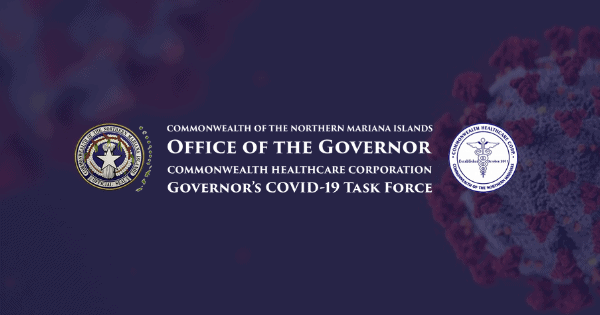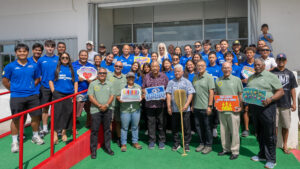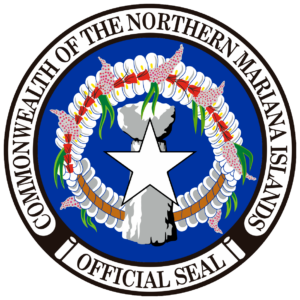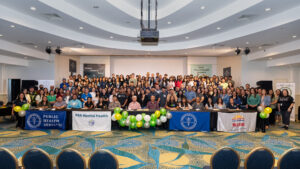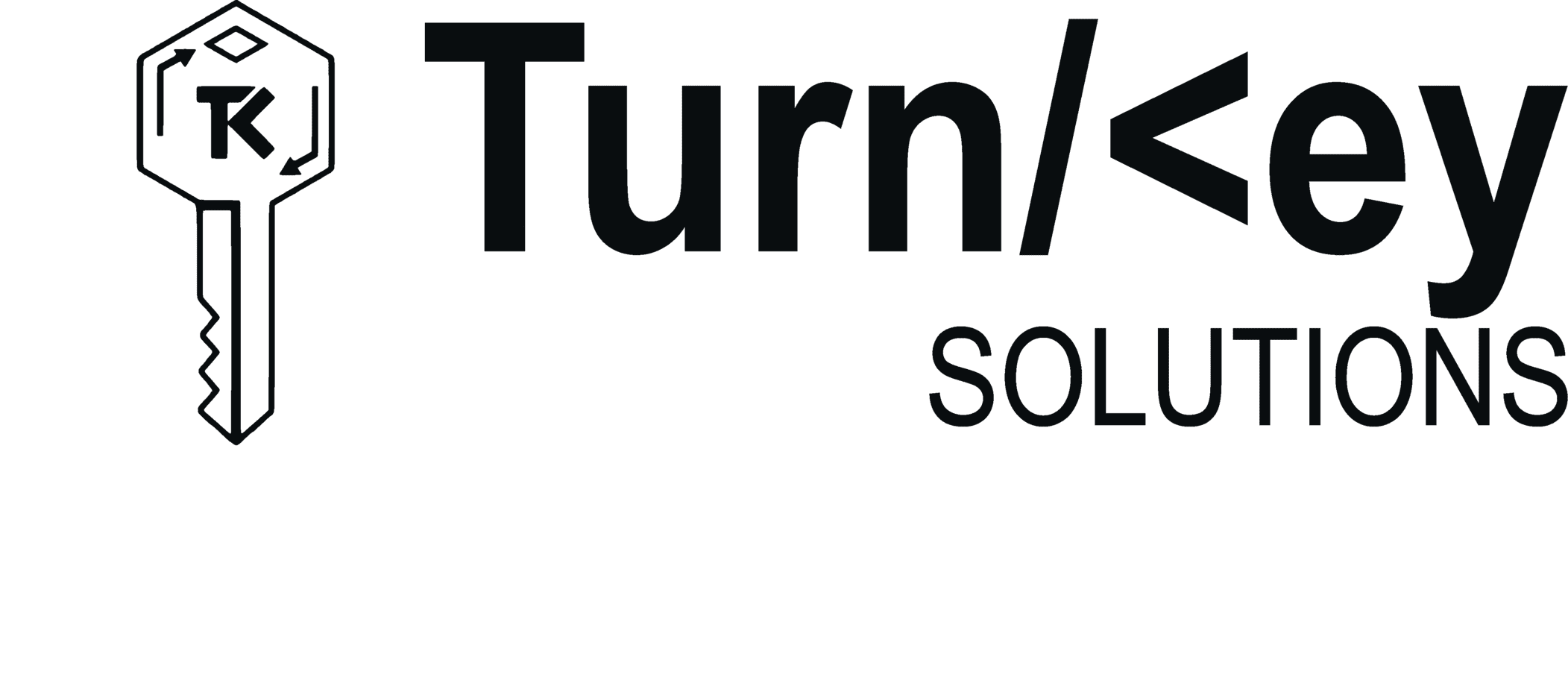The safety and health of the residents of the CNMI remain the top priorities of the Governor’s COVID-19 Task Force and the Commonwealth Healthcare Corporation (CHCC). With approximately 60% of those fully vaccinated having received a booster shot, declining COVID-19 cases, and the current COVID-19 Community Level, entry protocols will be updated.
Community Level Low
With the new U.S. Centers for Disease Control and Prevention (CDC) metric, the CNMI is currently in Community Level Low.
A combination of three factors determines the COVID-19 Community Level:
1. New COVID-19 admissions per 100,000 population in the past 7 days
2. The percent of staffed inpatient beds occupied by COVID-19 patients
3. Total new COVID-19 cases per 100,000 population in the past 7 days
The COVID-19 Community Level is determined by the higher of the new admissions and inpatient beds metrics, based on the current level of new cases per 100,000 population in the past 7 days.
To date, cases are continuously detected via Community-Based Testing, CHCC testing, as well as at-home testing. As of April 4, 2022, a total of 11,158 cases of COVID-19 have been reported in the CNMI, with 1 in 5 CNMI citizens estimated to have contracted the disease.
Recommendations for individual persons and households based on COVID-19 Community Levels:
I. HIGH a. Wear a well-fitting mask indoors in public, regardless of vaccination status (including in K-12 schools and other indoor community settings)
b. If you are immunocompromised or have a high risk for severe disease:
c. Wear a mask or respirator that provides you with greater protection
d. Consider avoiding non-essential indoor activities in public where you could be exposed
e. Talk to your healthcare provider about whether you need to wear a mask and take other precautions (e.g., testing)
f. Have a plan for rapid testing if needed (e.g., having home tests or know access to testing)
g. Talk to your healthcare provider about whether you are a candidate for treatments like oral antivirals, pre-exposure prophylaxis (PrEP), and monoclonal antibodies
h. If you have household or social contact with someone at high risk for severe disease:
i. Consider self-testing to detect infection before contact
j. Consider wearing a mask when indoors with them
k. Stay up to date with COVID-19 vaccines and boosters
l. Maintain improved ventilation throughout indoor spaces whenever possible
m. Follow CDC recommendations for isolation and quarantine, including getting tested if you are exposed to COVID-19 or have symptoms of COVID-19.
II. MEDIUM a. Wear a mask based on your personal preference, informed by your personal level of risk
b. If you are immunocompromised or have a high risk for severe disease
c. Talk to your healthcare provider about whether you need to wear a mask and take other precautions (e.g., testing)
d. Have a plan for rapid testing if needed (e.g., having home tests or know access to testing)
e. Talk to your healthcare provider about whether you are a candidate for treatments like oral antivirals, PrEP, and monoclonal antibodies
f. If you have household or social contact with someone at high risk for severe disease:
g. Consider self-testing to detect infection before contact
h. Consider wearing a mask when indoors with them
i. Stay up to date with COVID-19 vaccines and boosters
j. Maintain improved ventilation throughout indoor spaces whenever possible
k. Follow CDC recommendations for isolation and quarantine, including getting tested if you are exposed to COVID-19 or have symptoms of COVID-19.
III. LOW (Current level as of April 6, 2022) a. Wear a mask based on your personal preference, informed by your personal level of risk
b. If you are immunocompromised or have a high risk for severe disease
c. Have a plan for rapid testing, if needed (e.g., having home tests or access to testing)
d. Talk to your healthcare provider about whether you are a candidate for treatments like oral antivirals, PrEP, and monoclonal antibodies
e. Stay up to date with COVID-19 vaccines and boosters
f. Maintain improved ventilation throughout indoor spaces whenever possible
g. Follow CDC recommendations for isolation and quarantine, including getting tested if you are exposed to COVID-19 or have symptoms of COVID-19.
Entry Procedure
Effective April 8, 2022, domestic travelers inbound via air or sea are not required to fill out the health declaration form.
All international travelers are required to fill out the health declaration form due to outbound testing requirements at least 72 hours prior to arrival at www.staysafecnmi.com.
All travelers should continue to wear a well-fitted mask after arrival, if they must be around others, and if they develop symptoms, they should get tested at least 5 days after arrival.
All travelers wishing to avail of 5th-day testing must register at https://covidtesting.chcc.health.
All travelers and residents are reminded to live COVID-19 safe: follow the 3 W’s (wear your mask, wash your hands, and watch your distance); avoid crowds and poorly ventilated spaces; cover coughs and sneezes; clean and disinfect high touch surfaces daily; be alert for symptoms daily; and get tested for COVID-19.
Community-Based Testing (CBT)
The Governor’s COVID-19 Task Force and the CHCC will continue to ensure every individual in the CNMI has access to information about COVID-19, COVID-19 testing, and therapeutic treatments without barriers.
Individuals who are experiencing mild symptoms may get tested at designated testing sites, rather than in the CHCC Emergency Department. The CHCC Emergency Department is not a COVID-19 testing site. At-home test kits are available at local pharmacies or general stores. Free at-home COVID-19 test kits are available at www.covidtests.gov.
Individuals can get tested at the Koblerville COVID-19 Community Center (KC3). The CBT schedule is available at https://covidtesting.chcc.health. The KC3 is open 7 days a week, 8 a.m. – 4 p.m., Monday to Friday, and 8 a.m. – noon, Saturday and Sunday.
The Koblerville COVID-19 Community Center will operate during the following hours:
• Monday – Friday: 8 a.m. – 12 p.m., 1 – 4 p.m.
• Saturday and Sunday: 8 a.m. – 12 p.m.
For PCR test results, the CNMI Test Team may be reached at (670) 785-9968, 785-9969, 785-9970, 785-9972, 785-9973, or 287-7571. For Travel Testing, call (670) 287-7571 or 785-9966.
Travel testing clearance will operate during the following hours at KC3:
• Monday – Friday: 7:30 a.m. – 4:30 p.m.
• Saturday and Sunday: 8 a.m. – 12 p.m.
Testing Positive
If you test positive on any COVID-19 test (Community-Based Testing, KC3, antigen testing, or at home), stay home for at least 5 days and isolate from others.
After 5 days, do a self-check on how you are feeling. If you have no symptoms or your symptoms are improving, you can end isolation and should wear a well-fitted mask around others for an additional 5 days. If your symptoms are not improving or you still have a fever, continue to stay home until 24 hours after your fever stops without using fever-reducing medication and your symptoms have improved. After you feel completely better, keep wearing a mask around other people at home and in public through day 10.
Visit www.staysafecnmi.com/self-reporting within 5 days of your test result to obtain your quarantine completion certificate. You will need to upload a photo of your test result or test result documentation.
Employers may use this as documentation of their employee’s positive test result. If employers or employees require additional documentation, they must seek documentation from their healthcare provider.
Vaccination
The CHCC and the Governor’s COVID-19 Task Force highly encourage unvaccinated individuals to get vaccinated and those eligible to get a booster shot against COVID-19 to help prevent severe illness, hospitalization, and death.
The Multi-Purpose Center COVID-19 vaccination operation runs during the following hours:
• Tuesday – Saturday: 8 a.m. – 4 p.m.
• Sunday and Monday: Closed
Data from clinical trials show that vaccine effectiveness against COVID-19 infection wanes after the primary series, but protection remains high against severe disease and hospitalization. Get a booster shot when you are eligible to help prevent more serious symptoms and give COVID-19 to your friends or family.
Register for COVID-19 vaccination at www.vaccinatecnmi.com, or call (670) 682-7468.
Contact information
To obtain general information about the CNMI COVID-19 response, call the Governor’s COVID-19 Task Force Infoline at (670) 488-0211, available every day, 8 a.m. – 8 p.m., or visit www.staysafecnmi.com.
Call CHCC contact tracers to get assessed for monoclonal antibody treatments if you test positive for COVID-19 at (670) 286-1710, 286-1711, 285- 1942, 287-1652, and 287-1683.
For mental health support and coping skills, call (670) 284-0843 or 284-0847, every day, 8:30 a.m. – 3:30 p.m.
The CNMI is reminded to watch out for misinformation and to follow updates directly from the Governor’s COVID-19 Task Force and the CHCC.
Updates from the COVID-19 Task Force and CHCC can be found on Facebook, Instagram, and Twitter accounts @governorcnmi and @cnmichcc, as well as through CNMI media partners.
###

